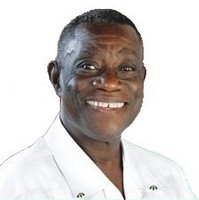Ghanaian President John Atta Mills died Tuesday, three days after turning 68 years old and five-and-a-half months before the end of his first term in office.
In other African countries, the death of political leaders has often led to political crises, including coups, such as Togo in 2005 and Guinea in 2008. But in Ghana, which has long been held up as a model of democracy for Africa, the peaceful transfer of power following the death of the president has only improved its reputation.
“That John Dramani Mahama, Mills’ vice president, would be sworn in within hours of Mills’ death was almost an afterthought for Ghanaians,” said Rod Alence, a Ghana expert and associate professor of international relations at the University of Witwatersrand in Johannesburg, South Africa. “Political leaders and the public have come to embrace the core values of constitutional democracy. This is an important asset as the country moves toward what could be a very closely contested presidential election at the end of the year.”

